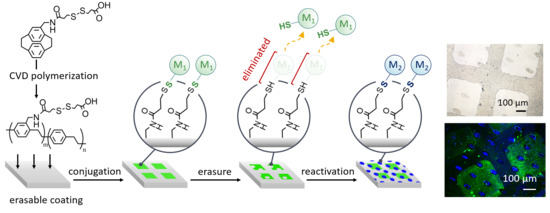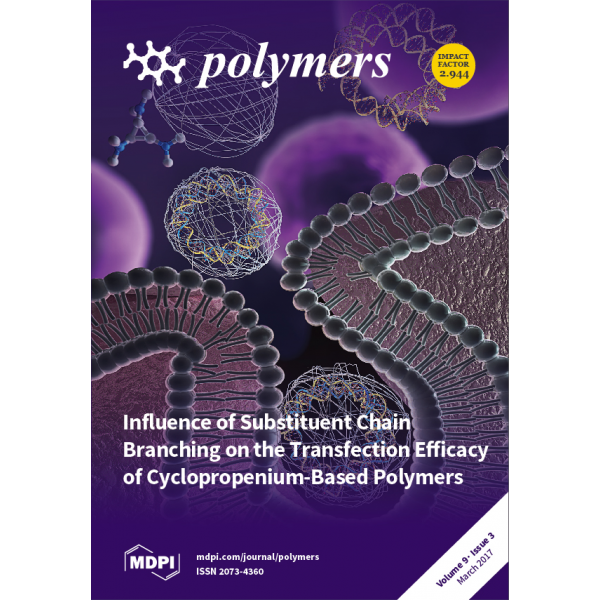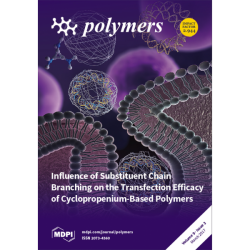Abstract

An erasable coating was prepared to modify material surfaces with accessibilities, including specific conjugation, elimination of the conjugated chemistry/function, and the reactivation of a second new chemistry/function. The coating was realized based on a vapor-deposited functional poly-p-xylylene coating composed of an integrated 3-((3-methylamido)-disulfanyl)propanoic acid functional group, resulting in not only chemical reactivity, but also a disulfide interchange mechanism. Mechanically, the coating was robust in terms of the thermal stability and adhesive property on a variety of substrate materials. Chemically, the anchoring site of carboxylic acid was accessible for specific conjugation, and a disulfide bridge moiety was used to disengage already installed functions/properties. In addition, the homogeneous nature of the vapor-phased coating technique is known for its morphology/thickness and distribution of the functional moiety, which allowed precision to address the installation or erasure of functions and properties. Characterization of the precisely confined hydrophilic/hydrophobic wetting property and the alternating reversibility of this wetting property on the same surface was achieved.
Keywords: poly-p-xylylene; coating; surface modification; erasable property; biointerface
.png)

